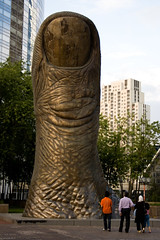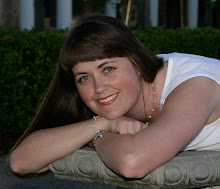 I'm reading Self-Editing for Fiction Writers. Still. (Because I am a fiction writer.) There is this chapter on proportion, which is spending too much time on relatively minor points in a scene. Browne and King mention several reasons for this.
I'm reading Self-Editing for Fiction Writers. Still. (Because I am a fiction writer.) There is this chapter on proportion, which is spending too much time on relatively minor points in a scene. Browne and King mention several reasons for this.
1) Lack of confidence in your writing (and readers) - thinking you need to fill in everything for your readers so they see your character's journey precisely as you saw it.
2) Writing about your pet interests/hobbies - you want to create an atmosphere of authenticity, but you don't want spend three pages on how to kill and field-dress a deer. We all know when we've checked out of a novel and skipped pages and pages of prose or description, even.
3) Editing and cutting - to fit certain word count limits, you can cut scenes that might render your novel skewed in one direction when it wasn't originally that way.
The authors suggest simply paying attention to your story will eliminate this. And their warning?
"Paying attention to your story doesn't mean ruthlessly cutting everything that doesn't immediately advance your plot. ... There is always room for philosophical asides that reveal the narrator's character, subplots that may resonate with the main plot, forays into odd corners of background that makes the fictional world three dimensional. The trick is telling the difference between digressions that harmonize with the story (even in odd and mysterious ways) and those that hang on the story like limpets." (italics mine...and a limpet is a mollusk, by the way). :)
So how do you tell the difference? They give some suggestions:
1) Approach your work as if you were reading it for the first time - gain some objectivity by walking away for a few days/weeks. What do you like/dislike by going through your work as a reader? "If most of what you enjoyed doesn't obviously advance your plot, then maybe you need to change your plot. ... It's far better to rewrite your story in a way that makes use of the good stuff than to simply use your story as an excuse for writing the good stuff. In the end, you want to be able to cut most of what doesn't interest you and still have an intact, flowing plot made up of stuff that does." And why this may not work is if you're writing about your pet interests!
2) Pay attention to your characters - whatever viewpoint you're using should control the degree of detail you put into your description. If you're hero is trying to run the bases in the 9th inning and you're in his head, then the scene details will be blurry. If the heroine is is watching the scene, however, you might describe everything in minute detail.
The authors couldn't stress enough, though, about being careful writing your pet interests into a novel. To quote them, "If, like most writers, you've shaped your main character after yourself, then your main character may be far more interested in the coinage of the emperor Aurelian or experimental jazz from the mid-sixties than any of your readers."
Q4U: How true is this for you? Do you need to go back and read your work as a reader, trying to see where you might have gone overboard with certain descriptions about one of your pet hobbies?
Friday, June 26, 2009
Proportions - Too Much or Too Little?
Subscribe to:
Post Comments (Atom)














10 comments:
Love the thumb! Where is it?
Thanks for all the work you put into your lovely blog,
Jen
Great advice here! I like to print my pages up; it helps me read stuff more objectively.
I just ordered Revisions and Self-Editing by James Scott Bell since I am almost to the revision stage. Sounds like the book you are reading is one I need to read too! Thanks for the tips!
I loved that chapter because I recently edited a friend's book and she did that all the time. When I found there was a real name for that kind of poor writing-- I convinced her to order the book!
So much great, helpful info! Even though my first book is resting in my file draw and I'm writing my first love, fiction short stories, the info applies to any writing.
I love this book. I've read it several times. Proportion is a biggy for me. I'm always cutting or adding, trying to get the proportioning right.
This is a wonderful book! I gained so much from reading it! But it's still hard to know when we're adding too many details and not enough. I'm trying to keep things that advance my plot, and weave in historical details without stopping the story to tell something.
Wow great invaluable post! I have a MS I'm getting a proposal together for and for sure I'm going to read it with new eyes before I send it out.
jenette - that huge thumb is in paris! check it out here
I don't THINK I have a proporation problem. My problem is something you mentioned...and that's figuring out what detail should stay and what should go. If we cut out ever single thing that didn't advance our plot..then just like you said, our story world would lose a lot of its appeal. It's definitely a balancing act.
Post a Comment